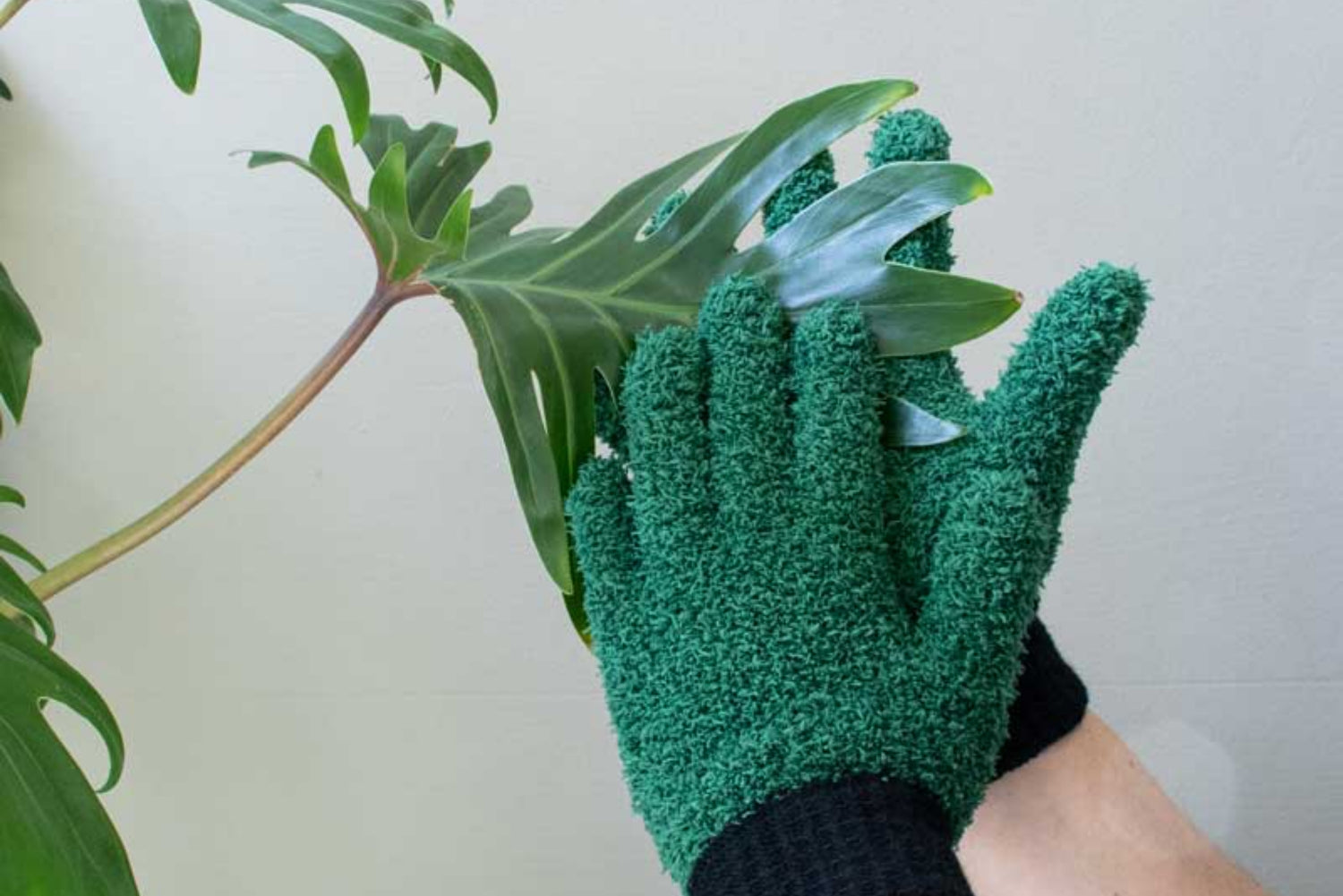Houseplants are now almost a matter of course in modern life – whether in the living room, home office, or open-plan office. They not only bring more naturalness into our rooms but also improve air quality, increase humidity, and promote well-being.
But many quickly resort to chemical products when caring for their plants: sprays against pests, artificial fertilizers, or so-called leaf shine products. The good news: this is usually not necessary – because there is another way. With simple home remedies and natural methods, you can keep your plants healthy without burdening your indoor air or the environment.
1. Dust-free leaves – without chemical leaf care products
Dust especially settles on large, smooth leaves like those of monstera, rubber plants, or ficus. This not only looks unattractive but also impairs photosynthesis – the plant can absorb less light and grows more slowly.
Naturally clean:
A damp microfiber cloth or appropriate care gloves are perfectly sufficient to gently clean leaves. Alternatively, you can rinse plants with lukewarm water (e.g., in the bathtub or shower). Important: not too cold and not in direct sunlight – otherwise, the leaves may be damaged.
Tip:
About once a month, a gentle cleaning is completely sufficient. This keeps the pores of the leaves free and allows the plant to "breathe."
2. Combat pests naturally – with neem oil and co.
Aphids, spider mites, or fungus gnats are unpleasant guests that like to spread on dry, over-fertilized, or too warm plants. Classic insecticides work quickly but can also pollute indoor air – especially indoors.
Gentle alternatives:
-
Neem oil: A purely plant-based oil extracted from the neem tree. It disrupts the hormone balance of pests but is not harmful to humans or pets.
-
Soapy water: A splash of biodegradable dish soap in 1 liter of water helps with light infestations.
-
Yellow sticky traps: Ideal against fungus gnats – completely chemical-free.
Tip:
Before you spray: always remove infected leaves individually first and isolate the plant to avoid endangering others.
3. Fertilize naturally – with home remedies instead of artificial fertilizers
Plants need nutrients to grow – but many reflexively reach for chemical liquid fertilizers. These are often highly concentrated, promote rapid growth, but can deplete the soil or damage roots in the long term.
Better naturally:
-
Coffee grounds: After drying, work sparingly into the soil – provides nitrogen and promotes soil life.
-
Banana peels: Dried and ground as a potassium source, especially helpful for flowering plants.
-
Nettle manure: A classic home remedy with lots of nitrogen – ideal during the growth phase (spring/summer).
Attention:
Less is more! Natural fertilizers work slower but more sustainably – so better to give small amounts regularly.
4. The right location works wonders
Many plant problems are not caused by lack of care but by an unsuitable location: too dark, too dry, too warm, or too drafty. Stagnant air can also lead to mold, pest infestation, or fungi.
This is how you find the optimal spot:
-
Light: South-facing sides for sun-loving species (e.g., succulents), north or east sides for shade lovers
-
Humidity: Tropical plants like Calathea or ferns prefer rooms with higher humidity – e.g., bathrooms or spots near the window
-
Air circulation: Regular ventilation prevents fungal infestation – but avoid direct drafts!
Tip:
Turn your plants a little every few weeks – this way they grow more evenly and become more resilient overall.
5. Earth & Pot: The underestimated care heroes
Not only what grows above the soil deserves attention. The substrate – that is, the soil – is also an important factor for healthy plants. Old, compacted, or over-fertilized soil can cause root rot, mold, or nutrient deficiency.
This is how you care for the soil naturally:
-
Renew soil regularly: About every 1–2 years, depending on the plant type
-
Use peat-free organic soil: Environmentally friendly and rich in natural microorganisms
-
Loosen with expanded clay or sand: Promotes aeration and prevents waterlogging
Tip:
When repotting, also check the roots – remove brown, mushy spots with a clean pair of scissors.
Natural plant care works – indoors and outdoors
Those who want to avoid chemical aids today have many options to care for plants simply, safely, and environmentally friendly. With home remedies, a little attention, and the right location, houseplants not only thrive – they also make an important contribution to a healthy indoor climate.




